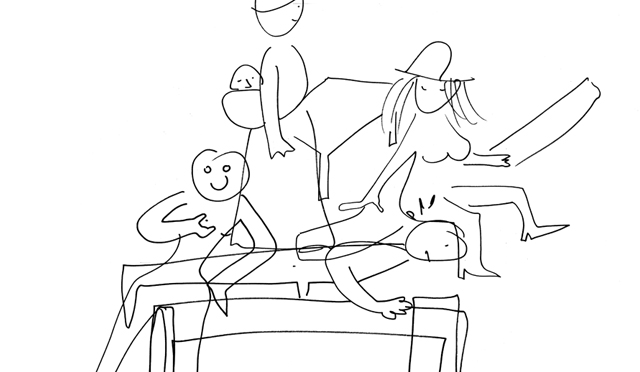Search
To search for an exact match, type the word or phrase you want in quotation marks.
A*DESK has been offering since 2002 contents about criticism and contemporary art. A*DESK has become consolidated thanks to all those who have believed in the project, all those who have followed us, debating, participating and collaborating. Many people have collaborated with A*DESK, and continue to do so. Their efforts, knowledge and belief in the project are what make it grow internationally. At A*DESK we have also generated work for over one hundred professionals in culture, from small collaborations with reviews and classes, to more prolonged and intense collaborations.
At A*DESK we believe in the need for free and universal access to culture and knowledge. We want to carry on being independent, remaining open to more ideas and opinions. If you believe in A*DESK, we need your backing to be able to continue. You can now participate in the project by supporting it. You can choose how much you want to contribute to the project.
You can decide how much you want to bring to the project.
Five Mondays and a Tuesday ago, we started with a subject that had been going around in our heads this editorial since we wrote the issue dedicated to failure, but which stretches way beyond military conflict.
It is a subject that is multiple, as minuscule and intimate as it is grandiose and collective. Configured in various forms, all its angles, however, arise from the same reality. The Risk Society, the modern, developed society predicted by Ulrich Beck [[La Sociedad del Riesgo: Hacia una nueva Modernidad. Ulrich Beck, Paidos Iberica. 2006]] with its social, political, economic, and industrial risks that tend increasingly to escape the institutions of control and protection of industrial society… is already here.
And this risk, coupled with its resulting fears, becomes the shield and excuse for policies of economic privatization and the dismantling of the social: the limiting of liberties; the kidnapping of intimacy and imposition of greater control as the guarantee of security. All this sounds too similar to Orwell’s 1984 (the future is already here), but there are many artistic and philosophical references that have been battling, for a long time now, with this tension between liberty and security/control. One just has to look at Dora García’s Zimmer Gespräche de Dora García, or more theatrical versions, such as the critique by El Invernadero of Harold Pinter (running until last week at the Teatre Lliure in Barcelona).
Our collaborators corroborated this, beginning with Rosa Naharro based on the indispensable exhibition by Hito Steyerl at the MNCARS, Duty Free Art. Where the artist generated a framework for reflection through the use and analysis of images; who generates them, where and how they are distributed, their reach and the meanings they have…
Ángel Calvo Ulloa talked to Antoni Muntadas, an essential reference for visual works surrounding control, while Amaia Fernández de Gorostiza wrote “Out of Kilter, Rethinking the State of Global Emergency”, in response to Real Time at Arts Santa Mònica.
For her part Marla Jacarilla wrote about Harun Farocki at the IVAM, because few knew like he did how to translate fear, control and security into images. We concluded with a critical text by Eduardo Pérez Soler, who wrote about the exploitation of fear as a fundamental strategy to maintain order and control in the heart of hyper-connected societies in State of Surveillance, State of Terror .

A*DESK is a critical platform focused on publishing, training, experimentation, communication and dissemination in relation to contemporary culture and art, which is defined by transversality. The starting point is contemporary art, because that is where we come from and this awareness allows us to go much further, to incorporate other disciplines and forms of thought in order debate issues that are relevant and urgent for understanding our present.
"A desk is a dangerous place from which to watch the world" (John Le Carré)